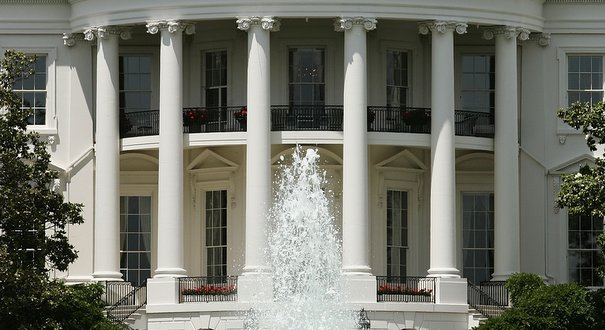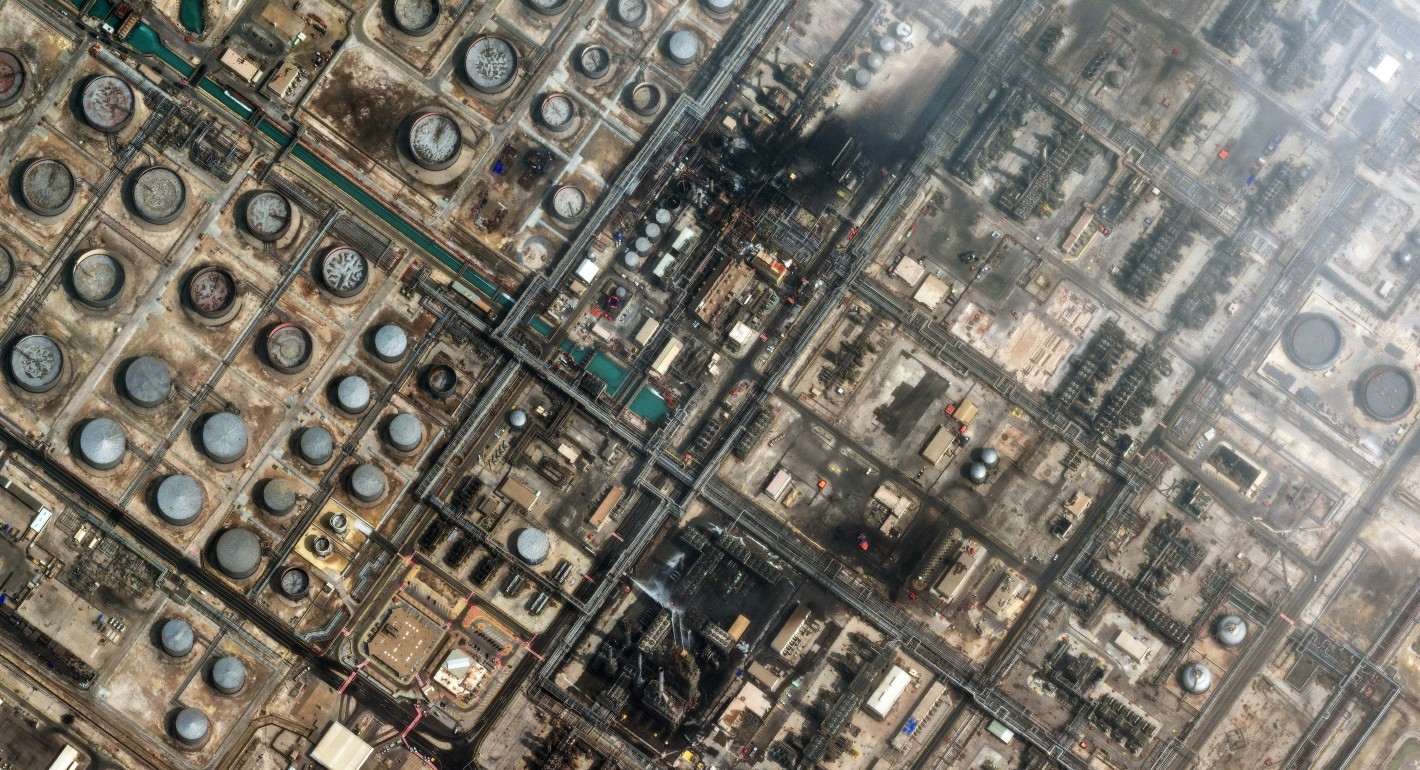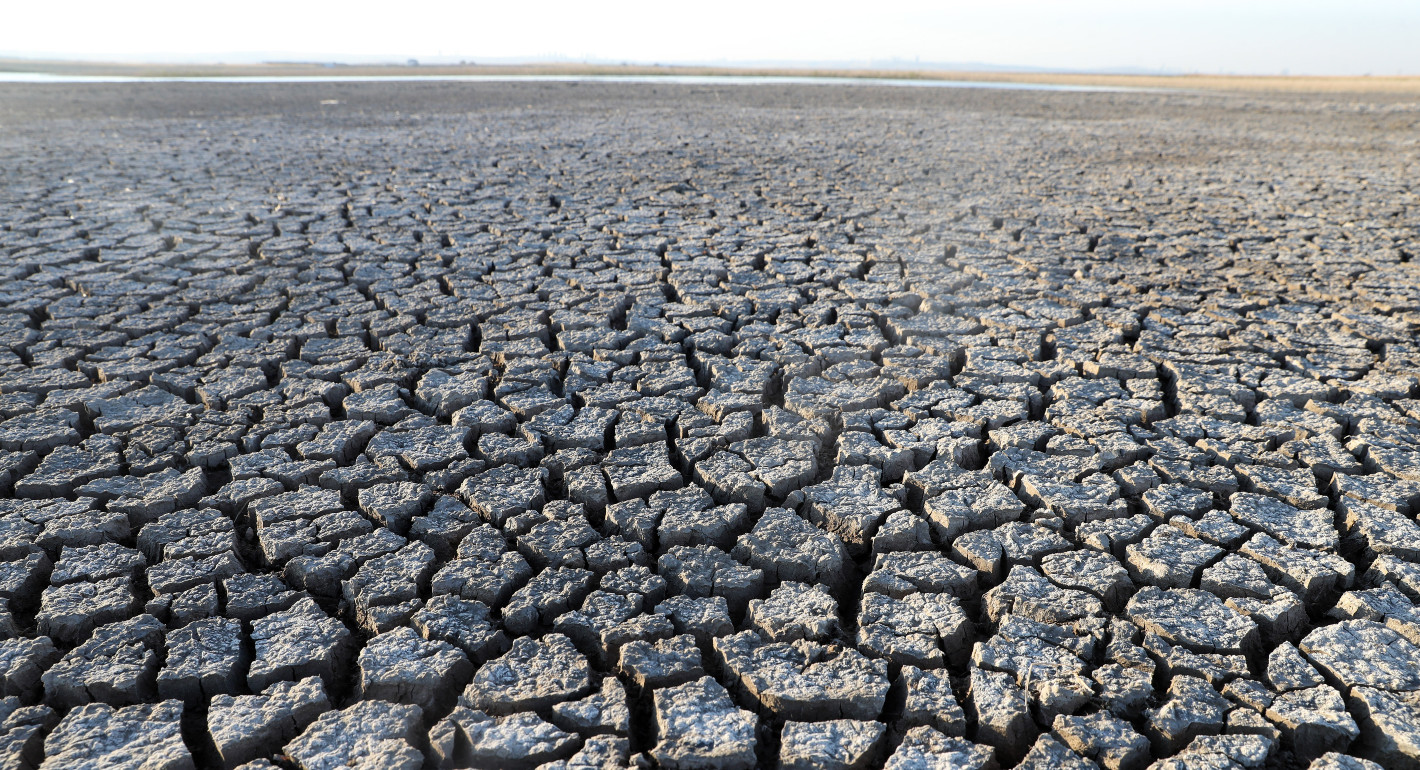David Rothkopf
{
"authors": [
"David Rothkopf"
],
"type": "legacyinthemedia",
"centerAffiliationAll": "",
"centers": [
"Carnegie Endowment for International Peace"
],
"collections": [],
"englishNewsletterAll": "",
"nonEnglishNewsletterAll": "",
"primaryCenter": "Carnegie Endowment for International Peace",
"programAffiliation": "",
"programs": [],
"projects": [],
"regions": [
"North America",
"United States"
],
"topics": [
"Political Reform",
"Foreign Policy"
]
}
Source: Getty
12 Catastrophes the Next President Must Avoid
Some of the greatest achievements of America’s best leaders were the things they did not do, the paths they did not take, the wars they did not fight, and the disasters they avoided.
Source: Foreign Policy

Other presidents have similarly succeeded by avoidance. George H.W. Bush, to cite another example, deserves great credit for ensuring that when the Soviet empire did fall, as Eisenhower had much earlier worked to make happen, the transitions in Eastern Europe were peaceful. Where there could have been chaos Bush reached out to other world leaders and produced an orderly handover of power. He also waged a war against Iraq after its invasion of Kuwait in which he made the wise decision not to continue on to Baghdad, avoiding a messy conflagration like that which would later consume his son's presidency.
Both Eisenhower and Bush paid a price for their successes. Eisenhower's image was for decades shaped by the Kennedy caricature of him, and it is only now that he is rightfully gaining recognition as being among the best presidents of the last century. Bush did not win a second term as president in part because his accomplishments were too subtle to resonate with the public during the 1992 campaign.
We get a distorted view of real leadership when we discount sometimes hard to see accomplishments that come from presidents with vision, restraint, and a knack for behind-the-scenes deftness. This struck me again last week when President Obama and New Jersey Gov. Chris Christie toured the devastation wrought by Hurricane Sandy. They were hailed as leaders for their very public reaction to a crisis when in fact, real leadership would have involved avoiding the crisis in the first place -- or reducing its consequences, as we might have done had Obama, Christie, and other officials taken warnings about the consequences of climate change, severe weather, and deteriorating infrastructure more seriously. Indeed, just exercising enough prudence to take the measures that many urban planners around the world already do in areas threatened by such severe storms (regardless of their views about why such storms are now occurring with greater regularity) would have made the consequences of Sandy less grievous.
With Sandy fresh in our minds and Americans headed to the polls, it is worth looking ahead to consider what other avoidable catastrophes might be better measures of the next administration than stories the evening news can more easily point a camera at each night. Here are a dozen:
1. War with Iran—and a Nuclear Arms Race in the Middle East
The easiest war to avoid may be the one everyone sees coming. But in the case of conflict with Iran, it will not be so simple. In the first instance, to stop Iranian weapons development will require a more credible threat of military action from powers capable of derailing the program than currently exists. Next, while there are sensible arguments that suggest Iran's acquisition of nuclear weapons is not only unavoidable but may not be disastrous given our deterrent capacity, the bigger risk is not from Iran but from a world in which Iran's rivals across the Persian Gulf, such as Saudi Arabia, to others in the region and emerging powers elsewhere around the world enter a nuclear arms race. Such a race would both geometrically increase the likelihood such weapons might be used but it would also sap precious resources from struggling economies that would better spend them elsewhere. It will take toughness with Iran and a recommitment to a new, more effective global nonproliferation regime as a top priority to avoid all those traps.
2. Regional Conflagration in the Middle East
The Greater Middle East has not been more dangerous since the darkest days of the Cold War. Today instability from Tunisia to Pakistan means there's a real possibility of crises spreading rapidly -- and connecting up with each other. Syria, already now a proxy conflict between Iran on the one side and various Gulf states on the other, is one such example. But imagine the consequences of a collapsing regime in Jordan or, even more likely, of what the coming reckoning in a fractured Iraq will look like. The next U.S. administration will be tempted to lean back and indeed, must embrace solutions led by regional actors more than ever before. But as with Iran, it will take vastly more effective use of formal and informal global mechanisms to keep a lid on this region.
3. Escalating U.S. Involvement in an Unraveling Africa
Africa is the new Middle East. It is rich with resources, unstable, and targeted by insurgents, extremists, and major powers for both these reasons. Civil wars, corruption, historic instability, Islamic extremists, humanitarian crises, more active U.S. and European military presences, and rising stakes for China and other emerging powers have created a volatile situation that could gradually escalate into the world's newest quagmire. Will the next U.S. president be sucked into the trap of incremental escalation like the that led to the Vietnam War?
4. The Next 9/11
Among those who have done the most with the least credit are those up and down the U.S. chain of command who have forestalled terror attacks. Since 9/11, the record of protecting the homeland and Americans around the world has been admirable. But the next president will have to do that, and then some: by avoiding another 9/11, I mean something more than confounding the plots of terrorists. I mean avoiding events that suck America into the orgy of political hysteria, government spending, and violating our own most cherished principles that marked our "war on terror." It is not enough simply to neutralize terrorists. We need to ensure that we regain the perspective that allows us to respond to threats proportionally and in ways that do not damage our standing in the world or ability to lead. (Note: Waves of drone attacks, cyber incursions, and special ops only meet the first half of this guideline.)
5. A Trade War with China
With sluggish economies in the United States and China and both countries engaging in artificial devaluation of their currencies, it's easy to imagine scenarios that lead to conflict as blame-shifting escalates and populist impulses rule. That's especially the case given that China through subsidies and other unfair practices has yet to start playing by the international trade rules it accepted over a decade ago. But confrontation could easily get out of hand, threaten China's new leadership, and deteriorate into a real trade war. Not only is this economically unhealthy for the world's two largest (and very interdependent) economies but it would be diplomatically devastating since many of the biggest problems require a kind of cooperation between the two sides we have seldom seen before.
6. A U.S. Fiscal Catastrophe
The "fiscal cliff" is only the first among many huge challenges associated with getting America's financial house in order. Failing to address these could further undercut America's credit rating, our ability to invest in our future or protect ourselves, and even lead to default. Neither the world economy nor our own can withstand more of the kind of brinksmanship and denial practiced by Washington in the past decade. Tax increases and spending cuts in programs beloved by both political parties in America are absolutely essential to beginning a trajectory of improvement in this critical area.
7. A Japan-Style American Stagnation
Austerity alone will not, however, do the trick. America is at a moment of huge opportunity. Of the world's developed economies, we are the one showing the most resilience. We are home to a potential bonanza associated with new energy resources and we can borrow to invest in much needed infrastructure upgrades at very low cost (provided we do so wisely). We can make our educational system more effective at training the workers of tomorrow. But this requires more than just speeches and modest gestures. We must make growth a priority and yet do so in ways-such as removing regulatory obstacles, shifting from defense spending to investment spending at home, embracing foreign investment-that avoids the kind of multi-decade downturn that has straightjacketed Japan since the 1990s.
8. Economic Shocks from the Eurozone
While Europe made some progress in recent months toward calming market unease, austerity measures are likely to produce political pushback of a potentially extreme nature in the next couple of years. What's more, global shocks from other international crises, whether a war in Iran or an escalating Middle East conflict, could make the bad situation in Europe worse and compound any geopolitical misfortune with nasty economic consequences. Such political reversals could also renew discussion of breaking up the European Union (which may or may not be a bad thing) and make markets very skittish again (which would be). The United States will have to find a way to remain actively engaged but this may become even more challenging as some of the promising "fixes" of 2012 turn into the setbacks of 2013 and beyond.
9. Shocks From a Warming Climate
It may be too late. We may not be able to reverse the changes to our environment that are making severe storms more common, melting our ice caps, and producing record high temperatures. If that's true, then we face a choice: reactive or proactive adaptation. Right now, we merely react, responding to disasters. But we could strengthen our sea walls, improve our electricity grids, rebuild ports and bridges and roadways. Of course, this should not supplant efforts to rein in carbon emissions-and we should embrace the fact that shifting from coal to gas power will help spur the American domestic energy revolution and create jobs and growth at home. But the bigger point is that great leaders will be measured by how few tragic photo ops their successors feel obligated to stage in the wake of crises.
10. The Next Financial Market Crisis
Here's the bad news: Global markets are rife with more risks today than they were in 2008. There are more too-big-to-fail banks. There are larger and more complex and opaque oceans of derivatives churning. There is still no global regulation. There are still major markets containing big bubbles from Chinese real estate to the price of gold worldwide. In short, there is still the potential for such a massive meltdown that it could make the crisis that ushered in the Obama era look like mere prelude. It is time to get much more serious about U.S. and international oversight and enforcement, investing in the tools and people needed to identify and avoid future upsets.
11. 1960s-Style Social Unrest
It seems a long shot. And indeed, social crisis from the Middle East to China to an increasingly nationalistic and xenophobic Europe is more likely. But American leaders must focus on what they can control. And if inequality continues to grow in the United States; if our underclass, with its skyrocketing high school dropout rates, continues to fall faster and faster behind; if fiscal austerity forces us to shrink social programs and shrinking tax bases crush the ability of cities to tackle their problems (or pay their pensions), America may see unrest evoking that of the 1960s...or worse. We run a great risk if we view what is happening in this country merely as a cyclical slowdown. Any society that pushes the rich and poor farther and farther apart is broken. And we need to address the problem just as we did the racial divides that haunted us in the ‘60s-as a matter of grave national urgency.
12. An Era of Permanent War
Cyberwar is often called "white collar conflict." This is both a blessing and a curse. It is stealthy and may cause less loss of life than traditional armed conflicts. But this makes it more tempting to engage in. And a world in which nations constantly probe and injure one another from afar could turn out to be vastly more dangerous in the long run. Cyberattacks will produce damage that demands retribution. Trust and stability will be undermined. And societies will reel not just from attacks that target infrastructure or markets but also from the civil liberties likely to be constrained in an effort to reduce the likelihood of future intrusions. The next American administration needs to be careful that it does not see such attacks-or the other "limited footprint" tools of war, from drones to special operations-as so "low risk" that it over-utilizes them. Otherwise, we'll be creating more risks than we alleviate.
About the Author

Former Visiting Scholar
David Rothkopf was a visiting scholar at the Carnegie Endowment as well as the former CEO and editor in chief of the FP Group.
- How Bush, Obama, and Trump Ended Pax AmericanaIn The Media
- A Bigger ClubhouseIn The Media
David Rothkopf
Recent Work
Carnegie does not take institutional positions on public policy issues; the views represented herein are those of the author(s) and do not necessarily reflect the views of Carnegie, its staff, or its trustees.
More Work from Carnegie Endowment for International Peace
- Iran Is Pushing Its Neighbors Toward the United StatesCommentary
Tehran’s attacks are reshaping the security situation in the Middle East—and forcing the region’s clock to tick backward once again.
Amr Hamzawy
- The Gulf Monarchies Are Caught Between Iran’s Desperation and the U.S.’s RecklessnessCommentary
Only collective security can protect fragile economic models.
Andrew Leber
- Europe on Iran: Gone with the WindCommentary
Europe’s reaction to the war in Iran has been disunited and meek, a far cry from its previously leading role in diplomacy with Tehran. To avoid being condemned to the sidelines while escalation continues, Brussels needs to stand up for international law.
Pierre Vimont
- Lessons Learned from the Biden Administration’s Initial Efforts on Climate MigrationArticle
In 2021, the U.S. government began to consider how to address climate migration. The outcomes of that process offer useful takeaways for other governments.
Jennifer DeCesaro
- India Signs the Pax Silica—A Counter to Pax Sinica?Commentary
On the last day of the India AI Impact Summit, India signed Pax Silica, a U.S.-led declaration seemingly focused on semiconductors. While India’s accession to the same was not entirely unforeseen, becoming a signatory nation this quickly was not on the cards either.
Konark Bhandari









